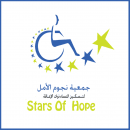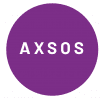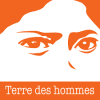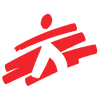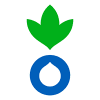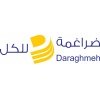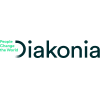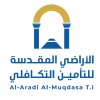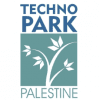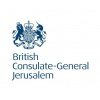Professional DiDRR International DIDRR Expert “Trainer”
Request for Proposals
Announcement
Professional DiDRR International DIDRR Expert “Trainer”
Background and Context
Persons with disabilities and other at-risk groups are more likely to be left behind or abandoned during evacuation in disasters and conflicts due to a lack of preparation and planning as well as inaccessible facilities and services. Persons with disabilities are excluded from disaster preparedness measures, and are invisible when it comes to community and risk mapping or evacuation planning. They find it harder to access shelters and safe spaces due to environmental and attitudinal barriers or protection risks, and receive inadequate or inappropriate relief and support.
During the COVID-19 Pandemic, the Palestinian government declared the state of emergency and designed an Emergency Response Plan for handling the effects of COVID-19 outbreak, which included the closure of schools, universities, restaurants and other public facilities, prevention of gatherings up to the complete lock down. The Ministry of Social Development also put in place a Rapid Response Plan for the social protection sector, focusing on certain priorities for rapid intervention to protect poor and marginalized groups in order to prevent deterioration of their conditions and ensure their food and health security. Besides, the Ministry of Women's Affairs formed a GBV crisis management committee to work closely with other emergency committees formed by other ministries and governorates to coordinate and facilitate gender mainstreaming in all relevant emergency actions
However, despite the response plans and intentions announced by the government and civil society organizations (CSOs) to target and include persons with disabilities, within the relevant COVID19 risk management / reduction interventions, there were no specific plans nor interventions or services tailored to respond to the needs and requirements of persons with disabilities, women included. Although a number of persons with disabilities benefited from the emergency interventions, yet they were mostly targeted based on their poverty level not their disability.
Due to this fundamental exclusion of persons with disabilities, particularly women, from relevant disaster Risk Reduction interventions, at state and non-state levels, persons with disabilities were left behind to face the multifaceted negative health and socio-economic effects and implications caused by different crises and disasters. For this purpose, Stars of Hope Society (SHS) took the initiative to launch this project to promote Disability Inclusive Disaster Risk Reduction (DiDRR), to contribute to the elimination of negative impacts of disasters on persons with disabilities - specially on women and girls with disabilities- in the West Bank and Gaza Strip, by assessing their needs and priorities, building their resilience, advocating for disability inclusive disaster risk reduction policies and strategies and facilitating the access of persons with disabilities to the needed emergency and support services.
Assignment and key functions
A 6-day ToT training is planned to be delivered to 20 participants, comprising SHS staff with and without disabilities, the Palestinian Center for Disaster Risk Management (PalDRM) staff, national experts on DRR/DRM, representatives of organizations of persons with disabilities (OPDs), the Palestinian Disability Coalition members, and young activists with disabilities for the purpose of developing their capacities around Disability Inclusive Disaster Risk Reduction (DiDRR) concepts and prevention, preparedness, response and recovery strategies.
An external international DIDRR expert trainer will be contracted to conduct the TOT training course in coordination and consultation with SHS and CBM team. The ToT is expected to be conducted in person in the West Bank and, at the same time, virtually in Gaza Strip.
At the end of the training, the trainees are expected to develop a checklist on disability inclusion indicators for assessing and monitoring the inclusiveness of disaster risk reduction plans and programs. The trainer is also expected to support the SHS and the ToT participants throughout the checklist development process.
The training material should include – but not be limited to- the following:
Methodology to reduce barriers to inclusion in DRR faced by persons with disabilities.
Emphasizing the need for mainstreaming disability in public policies and for the enforcement of the rights of persons with disabilities, stated in the UNCRPD and other international conventions to which Palestine acceded, in compliance with the Sendai Framework.
Methods to for promoting the participation and inclusion of people with disabilities in Disaster Risk Reduction plans and interventions during times of crises / disasters and emergency situations, to save lives and leave no one behind at state and non-state levels.
Deliverables:
Training plan, training material, methodology, tools, and training evaluation forms.
Training needs assessment report
A checklist on disability inclusion indicators by end of the TOT training
Final report in English (5-8 pages), to be submitted after 1 week after the completion of ToT training, summarizing the training process, training evaluation, results and recommendations plus follow-up activities.
Duration of the consultancy:
Eight days comprising 2 days for preparation and 6 days for the ToT, during the period of August& September 2022.
Application procedures:
To download the full terms of reference for the assignment please click HERE
Please send your proposals in two separate sealed envelopes (one includes the technical proposal and one for the financial proposal) to the following address:
SHS Office – Ramallah –Al-Irsal St
Al-Mahseeri building 3, Third floor
Telefax: +972 2 2963454, 0598456738
Or by e-mail to:[email protected] and copy to [email protected]
Quotations in response to this TOR must be received no later than August 16, 2022.
“Stars of Hope Society” is committed to achieving workforce diversity in terms of gender, nationality and culture. Individuals from minority groups, indigenous groups and persons with disabilities are equally encouraged to apply. All applications will be treated with the strictest confidence.




